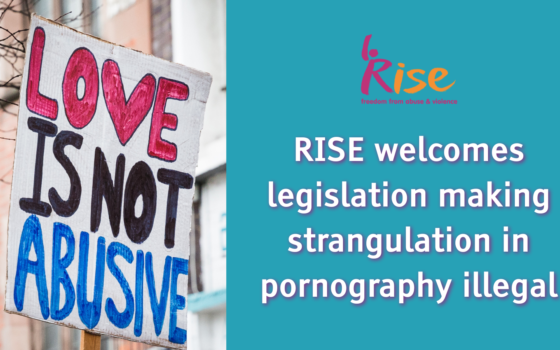Domestic abuse is a distressing and dangerous reality for many people. UK Government statistics show that one in four women and one in six men will experience domestic abuse during their lifetime.
Abuse has consequences not only for the people directly affected but also for employers, and their colleagues. A report from the Chartered Institute of Personnel and Development (CIPD) reveals that nearly three-quarters of employees affected by domestic abuse do not disclose their situation to their employer. Without knowing the scale of the problem, it is difficult for employers to create a supportive work environment. Employers may be unaware of the signs or hesitant to intervene, ultimately perpetuating a cycle of suffering for the affected employees.
Think about your office, your business, your team – how many people might that be where you work?
Today, as part of our series of articles for Sexual Abuse and Sexual Violence Awareness Week we want to explore how to spot the signs, how to help - and share details of how we can help employers like you
Spotting the Signs
Recognising domestic abuse in the workplace requires a delicate balance of empathy, awareness, and proactive measures.
Look out for
- Changes in behaviour such as a sudden decline in work performance or productivity
- Attendance and punctuality – increased absenteeism, lateness, unexplained absences or unusual requests for time off, particularly at short notice.
- Visible injuries or changes in appearance such as a sudden shift in style
- Anxiety and fear, especially when receiving calls or message from a particular family member. Linked to this, excessive communication/contact from a particular family member might suggest that they are ‘monitoring’ your employee.
- Reduced engagement with team events, or colleagues e.g. not attending parties
- Unexplained conflicts with colleagues or superiors – these may reveal underlying tensions
- Requesting salary advances or loans from the company, or not having access to money which might indicate financial abuse
It’s helpful to know what to look for but remember, if you think you can see the signs of abuse, take any approaches slowly and carefully.
Jumping in and telling someone your suspicions or telling them what to do will not help and may be dangerous.
Employees experiencing domestic abuse may fear reprisals or escalation if they disclose their situation – and with good reason. Leaving abuse is dangerous. 41% (37 of 91) of women killed by a male partner/former partner in England, Wales and Northern Ireland in 2018 had separated or taken steps to separate from them. Eleven of these 37 women were killed within the first month of separation and 24 were killed within the first year (Source - Femicide Census 2020. This means that creating a culture of trust and support is crucial to overcoming this barrier.
We can help you work out how to help
Our Corporate Training pack on this page explains everything we can do to support you and your business to support your team.
We can provide your staff and senior management teams with flexible training and support to understand domestic violence and abuse, how it affects people, and what we can do in the workplace to support your colleagues and to help reduce the impact.
You have the power to create lasting change for individuals and their families by building a workplace that truly prioritises the welfare of all employees.


